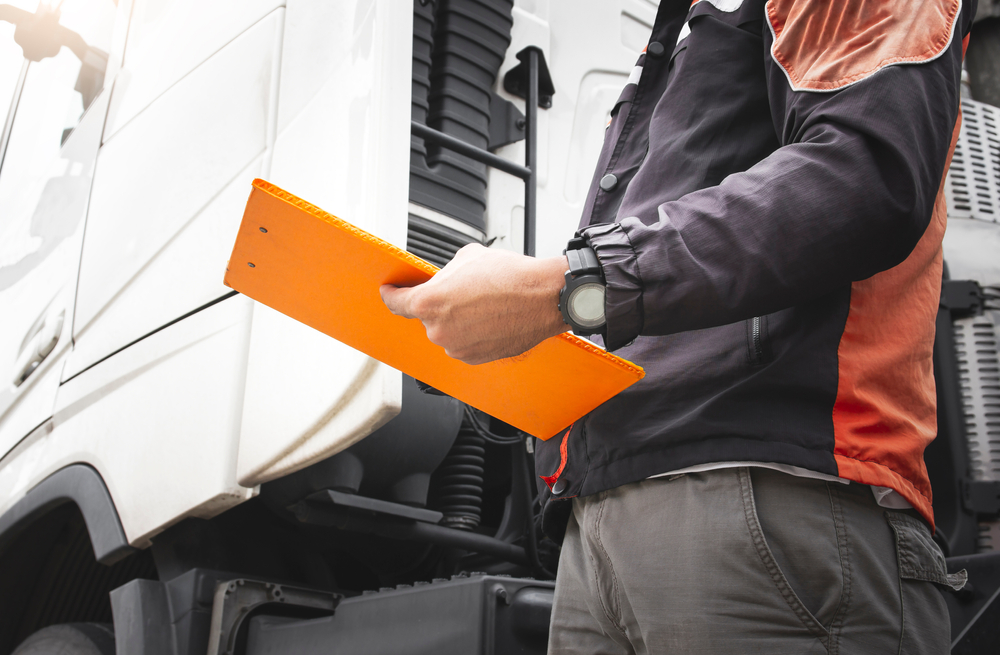One of the most rewarding aspects about my job is working with experienced drivers and operators. These are people who have been in this industry for years, oftentimes having accumulated vast amounts of knowledge.
Naturally, they like to share their knowledge with others on how to best handle certain situations they may find themselves in, especially when they are in breach of federal law, such as Heavy Vehicle National Law (HVNL).
Therefore, it can be difficult for these people to face prosecution for making a simple mistake themselves after doing the right thing for many years.
I’ve been reflecting about what causes these experienced drivers to end up inadvertently breaching the HVNL. Quite often, it can be the result of something unexpected happening during their trip which throws out their usual routine.
For example, it could be that they left a couple of hours later than usual because their truck was at the mechanic’s or they had to stop for heavy rain; or it might just have been an oversized load that weighed more than expected.
When these things happen, it’s easy for their work or rest hours to be disrupted which can have a huge impact on their schedule. One moment they’re operating at full capacity going about their business, then the next minute they’re being carted before a magistrate having to explain why they aren’t a danger to society.
Misunderstandings On Safety
The above situation bothers me, and I am not the only one who feels this way. It is these very drivers and operators who are keeping society safe, not just for themselves but also other people on the road – people like you! Furthermore, some of the exceptional circumstances that have seen them end up in court are often well beyond their direct control. Essentially, they have found themselves to be “victims of circumstance”.
Unfortunately, explanations like ‘I was trying to do the right thing’ or even ‘my contractor let me down’ might reduce your fine for HVNL charges; however, it’s not usually an excuse. As always prevention is key so be on alert when things change your regular routine and make sure that if there are any changes or disruptions to your plans, then you need to adjust accordingly so that you don’t accidentally break the law.
Following are a few things I’d recommend:

1). Plot Out Your Work And Rest Hours
It’s important to plot out your work and rest hours for the day before setting off on your regular routine. If you realise that you started at a different time or had an unexpected stop, you need to double check your diary for when your 24 hour work period finishes. You need to make sure that you have enough time to take your major rest break.
You should also double check that you don’t start too early the next morning. Otherwise you may still find yourself within the previous day’s 24 hour timeline which means you could be exceeding what was allowed in the previous 24 hour period. This means that you may inadvertently find yourself working more than your allowable hours in which you can find yourself in some hot water.
2). Use A Driver Fatigue App
In order to stay safe on the roads, use a driver fatigue app that tracks your work diary in real time. There are several of these out there and they’re not too expensive. You can use these for tracking trips or when schedules are disrupted. They will advise you when to take rest periods according to fatigue law compliance. This will help to remain aware of any potential breaches before they happen.
3). Know Your Load Limits
Make sure you know the load limits on any truck you use. I often see issues arise where the truck that is usually used for a particular job is out of action and another one substituted. It’s critical that you know both the load limit as well as dimension restrictions. This includes things like axle weights or registration deadlines, as these last minute changes to the vehicle you use could lead to big fines.
4). Weigh Your Truck
You should weigh yourself at the nearest weigh station before you leave on your run. I know this sounds like a pain, but if someone else has packed the load for you, they may have and given you the wrong weights. So by quickly stopping off at a weigh bridge, it can save time and potential fines later on down the line.
Transport for NSW will always take into consideration a driver that has done all they can to avoid breaking any laws or regulations. I have seen numerous situations where contractors have packed loads badly and simply lied on the paperwork about what the cargo weighed, causing drivers to get pulled over by inspectors. However, claiming ignorance will not get you out of trouble.
What will get you out of trouble, however, is demonstrating that you have taken all reasonable steps to avoid any breaches of law. Although it may be an inconvenience, you really need to weigh a load that you don’t trust.
5). Invest In Scales
Scales can be a great way to prevent overloading and should definitely be considered if you are serious about minimising your chances of breaching laws. Sure, scales are not cheap, but it’s worth every penny as this can help you to eliminate any weight discrepancies as well as any costly fines!
If you follow these helpful tips above, hopefully you won’t find yourself embroiled in our legal system. However, if you do, and for some reason want to talk about your case or just need some advice on the best way to handle things, we are here!
We are experienced heavy vehicle lawyers who can give you advice if you have any questions with regard to Heavy Vehicle Law in NSW.
Please call us today at 0416 224 601 or leave an enquiry.

